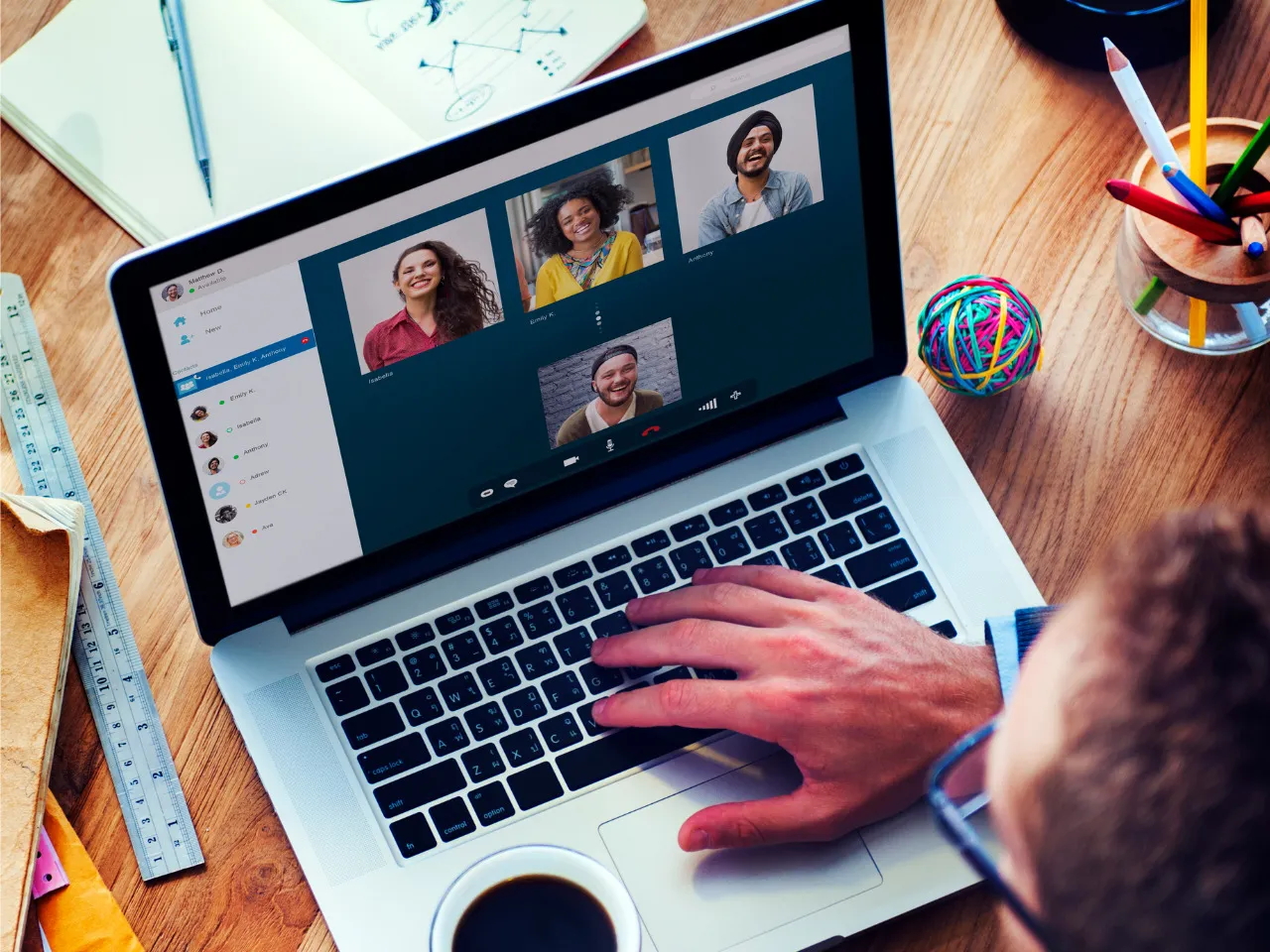Video calls are now a normal part of our daily lives. We use them to work, learn, connect with loved ones, and even speak to doctors. While the convenience is great, the privacy risk is real and often ignored.
With each call, sensitive information is being shared across the internet. Without proper protection, these conversations can be stolen, recorded, or leaked. This is why encrypted video calls are more important than ever.
What Are Encrypted Video Calls?
Encrypted video calls scramble your data so that no one else can view or listen to it. The video and audio are coded before being sent and decoded only by the intended person.
This means even if someone tries to intercept the call, they’ll see only unreadable data. It’s like locking your conversation in a digital safe, only accessible to those who have the key.
End-to-end encryption, or E2EE, takes this a step further. It ensures that even the app or service provider cannot access the content of your call.
Why You Should Care About Video Call Security
You might think, “Why would anyone want to listen to my calls?” But hackers don’t always target specific people. They target weak systems.
Unencrypted video calls can lead to data leaks, identity theft, or company secrets being stolen. Anyone discussing personal or professional matters online needs to consider the risks seriously.
Privacy is not just for top executives or celebrities. It’s for everyone who values control over their information.
How Encrypted Video Calls Work
Here’s how encryption simply protects your calls. When you begin a call, your device creates a secret key that encrypts the data.
This key converts the audio and video into a coded message. Only the device on the other end has the matching key to decode it correctly.
No one else, not your internet provider, not the video app, and not even a hacker, can read the message during transmission. It’s secure from start to finish.
The Importance of End-to-End Encryption (E2EE)
Many services say they’re encrypted, but not all offer E2EE. Without it, your call might still be visible to the platform itself.
End-to-end encryption means only the participants can see or hear the call. The service provider doesn’t store the keys and cannot access your data, even if asked by law enforcement.
This offers the highest level of privacy. It ensures that your conversation remains between you and the other person without a middleman.
Most Popular Platforms That Offer Encrypted Video Calls
Many platforms now offer some form of encryption. But only a few provide full end-to-end security. Let’s look at how they compare.
Signal
This platform is built for privacy. It offers full end-to-end encrypted video and voice calls for all users. No data is stored, and no ads are shown.
Owned by Meta, WhatsApp provides E2EE for calls and messages. It’s popular worldwide and easy to use across both iPhone and Android devices.
Zoom
Zoom offers optional E2EE. You must enable it manually in your account settings. Even without E2EE, Zoom uses strong encryption during all meetings.
Microsoft Teams
Microsoft encrypts data in transit and at rest. However, it does not offer full E2EE for video calls at the time of writing.
FaceTime
Apple’s FaceTime provides full E2EE for one-on-one and group calls. It works only on iPhones, iPads, and Macs.
Before choosing a platform, always read its security policy. Not all services are equally secure.
The Real Risks of Unencrypted Calls
When calls are not encrypted, the risks multiply quickly. Many people aren’t aware of the threats until it’s too late.
Data Theft
Hackers can steal passwords, bank info, or company records during calls. This can lead to fraud, financial losses, and legal issues.
Reputation Damage
Leaked video calls can spread online and harm your image. A private joke, business idea, or mistake can go viral without your consent.
Corporate Espionage
If your company is working on a new product, competitors could try to spy on your meetings. Encryption stops this from happening.
Legal Trouble
Regulations in healthcare, law, and finance demand secure communication. Failing to encrypt calls may result in penalties or lawsuits.
These dangers are not just hypothetical. They’ve already happened to many companies and individuals.
Key Features of Secure Video Calling Apps
When selecting a video app for secure communication, check for these features. They help ensure safety and reliability.
- End-to-End Encryption — Must be present and ideally turned on by default
- Meeting Passwords — Prevent uninvited guests from joining
- User Authentication — Confirms that only approved users are allowed in
- Waiting Rooms — Hosts can approve participants before the call starts
- Secure File Sharing — Keeps attachments safe within the platform
- Session Timeouts — Auto-ends idle calls to reduce risk
- Two-Factor Login — Adds a layer of protection during sign-in
Using these tools together builds a more secure meeting environment.
Industries That Rely on Encrypted Video Calls
Not all industries carry the same risk level. However, some rely more heavily on secure communication.
Healthcare
Doctors discuss private health details with patients via video. Encryption is essential for HIPAA compliance and patient trust.
Legal
Lawyers hold confidential meetings with clients and court officials. Breaches here can impact cases and client privacy.
Banking and Finance
Sensitive transactions, investment plans, and client data are discussed regularly. Encrypted calls reduce the chance of leaks.
Education
Virtual classrooms often involve exams, personal data, and student records. Encryption protects against data misuse.
Technology and Startups
Product demos, code sharing, and intellectual property are at stake. Protecting this data helps secure long-term growth.
How to Keep Your Video Calls Private
Even the best platform needs good user habits to stay secure. Follow these simple steps to avoid common mistakes.
- Use encrypted platforms only
- Enable all security features offered
- Update apps and software regularly
- Avoid public Wi-Fi without a VPN
- Never share your meeting links publicly
- Check the participant list during every call
- Always sign out when the meeting ends
These habits don’t take much time. But they add serious protection to your communication.
What’s Ahead for Video Call Security?
The world is moving online rapidly. With this shift comes a growing focus on safety and privacy in communication.
New encryption methods are being developed each year. These systems are more efficient, reliable, and user-friendly than ever before. Some platforms are working on features like encrypted cloud recording and secure file storage.
Governments are also raising standards for privacy. Laws like GDPR and HIPAA require strong protections, and platforms that fall short may face consequences.
As demand grows, encrypted video calls will become the expected standard. That’s good news for anyone who values privacy.
Conclusion
Encrypted video calls offer protection you can count on. Whether you’re working, learning, or chatting with family, your privacy should come first.
With rising threats and increased data sharing, encryption is no longer optional. It is critical. Select a trusted platform, follow best practices, and make encryption part of your daily routine. It’s a simple step toward smarter, safer communication.
Ready to keep your calls safe and secure? Choose encrypted video calls for all your important conversations. Stay protected, stay confident, and take charge of your privacy today.


